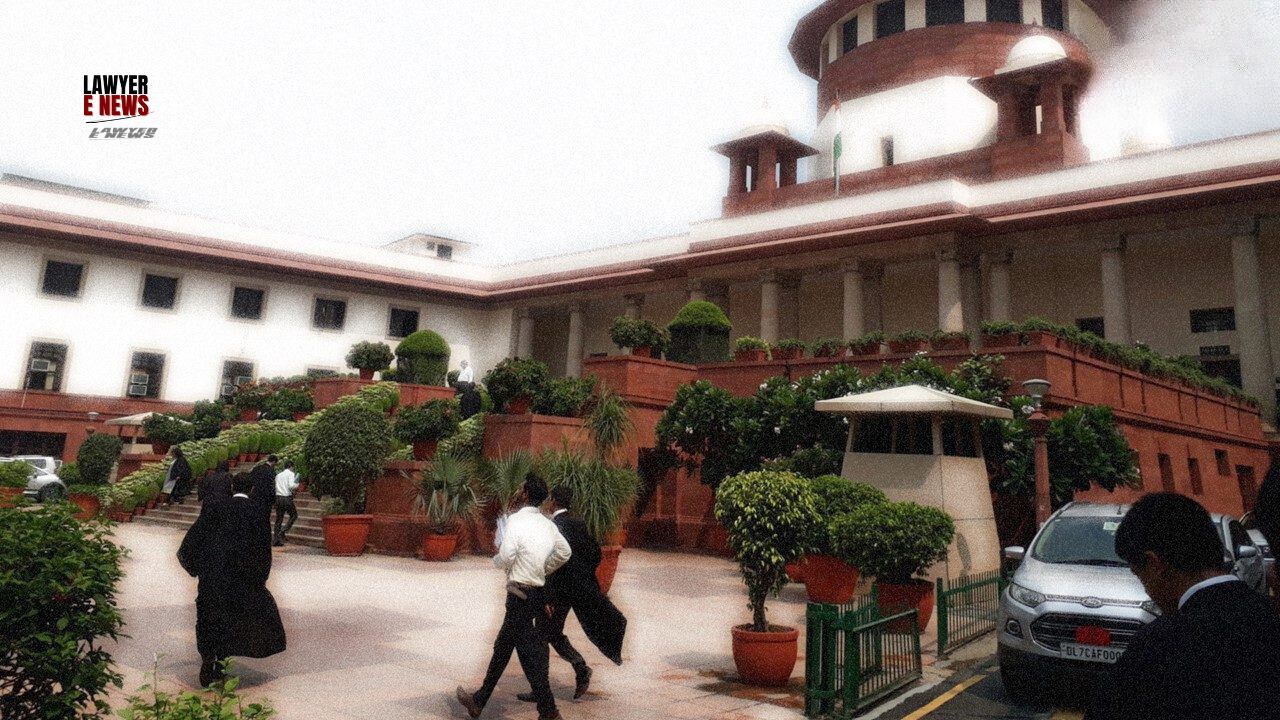-
by Admin
16 February 2026 1:47 PM



The Supreme Court of India held that the quashing of criminal proceedings under Section 482 CrPC is distinct from the compounding of offences under Section 320 CrPC. The Allahabad High Court had rejected an application to quash a case under Section 307 IPC (Attempt to Murder), despite a settlement between the parties, citing that the offence was non-compoundable. The Supreme Court, however, set aside the High Court's decision, ruling that continuing the case would be a futile exercise, given the minor nature of the injury and the amicable settlement reached.
Writing for the bench, Justice K.V. Viswanathan observed, "The High Court has not appreciated the difference between compounding of an offence and quashment of proceedings. The two concepts are different and not interchangeable." Citing Gian Singh v. State of Punjab (2012) 10 SCC 303, the Court reiterated that compounding of offences is strictly governed by Section 320 CrPC, while the power to quash proceedings under Section 482 CrPC is exercised by considering the overall facts, circumstances, and the interest of justice.
The case arose from a 1991 village dispute in Moradabad, Uttar Pradesh, where two rival parties had lodged FIRs against each other. Initially, the police closed the case against the appellants after investigation, stating that it was a false counterblast. However, the trial court rejected the closure report and summoned the accused in 1992. The accused challenged the order, leading to a 23-year-long criminal revision before the Allahabad High Court, which was ultimately dismissed in 2015.
The appellants only became aware of the pending case in 2022, when summons were issued. A compromise was reached in December 2022, and an application was filed before the High Court under Section 482 CrPC, seeking quashing of the case. The High Court refused, holding that a case under Section 307 IPC cannot be compounded.
The Supreme Court, however, took a different view. Emphasizing that not all cases under Section 307 IPC should be treated as non-interferable, the Court referred to State of Madhya Pradesh v. Laxmi Narayan (2019) 5 SCC 688 and Narinder Singh v. State of Punjab (2014) 6 SCC 466, observing: "The High Court would not rest its decision merely because there is a mention of Section 307 IPC in the FIR or the charge-sheet. It would be open to the High Court to examine as to whether the incorporation of Section 307 IPC is there for the sake of it or whether there is evidence to back it."
The Supreme Court closely examined the medical evidence and found that the injuries sustained by the complainant were not of a life-threatening nature. The Court noted: "While the first four injuries were contusions and abrasions, the fracture of the left ring finger cannot, by any stretch, be categorized as an attempt to murder."
Referring to Ramgopal v. State of M.P. (2022) 14 SCC 531, the Court further observed: "Proceeding with the trial when parties have amicably resolved the dispute would be futile and would defeat the ends of justice. The court must consider the seriousness of the injury, the voluntary nature of the settlement, and whether the case has any significant impact on public interest."
The Supreme Court also noted that the prime accused, Abdul Waris, who was allegedly responsible for firing a weapon, had passed away, and no firearm injuries were found. The Court observed that there was no evidence to establish a common object under Section 149 IPC.
Holding that this was a fit case for quashing under Section 482 CrPC, the Court concluded: "Keeping in mind the surrounding circumstances, the nature of the weapon and the injury, we are inclined to conclude that the overt act attributed to the appellants does not bring the case within the four corners of Section 307 IPC, either on a stand-alone basis or with the aid of Section 149 IPC."
The Supreme Court allowed the appeal, quashed the criminal proceedings, and set aside the Allahabad High Court's order.
This ruling reiterates that mere invocation of Section 307 IPC does not preclude courts from quashing cases where the facts do not justify the charge. It sets an important precedent that courts must assess evidence, injury, and intent before refusing to quash a case merely because it involves a serious offence on paper.
Date of Decision: February 11, 2025
